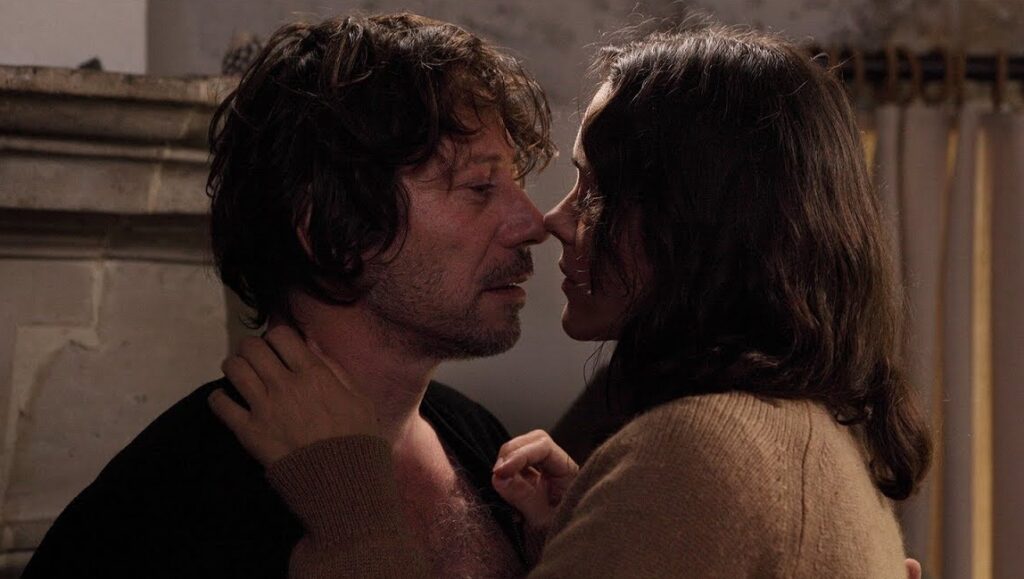“Meta” inadequately describes the interlacing literary and cinematic references, stories-within-stories, digressions, subplots and general convolution that comprises Arnaud Desplechin’s Ismael’s Ghosts, a dense and appealingly sloppy two hours-plus that begs for a second viewing for purposes of—excuse the awful word—unpacking. Familiar actors and Desplechin CV callbacks (from My Sex Life…, Kings and Queen and My Golden Days in particular) will please the director’s fans, but the new film resists providing anything so vulgar as “satisfaction,” especially as it wears on and its perspective becomes more indistinguishable from that of its increasingly cracked and paranoid protagonist, filmmaker Ismaël (Mathieu Amalric). And yet for a while, Ismael’s Ghosts is a borderline straightforward psychological mystery about the complacency-shattering return of Ismaël’s wife Carlotta (Marion Cotillard), who disappeared 20 years prior, detonating the lives of her husband and disconsolate father (also a noted filmmaker). Her return creates something of a love triangle, as Ismaël has settled down with astrophysicist Sylvia (Charlotte Gainsbourg) in a cozy beachfront cottage where he is writing his new film. Desplechin weaves in scenes from Ismaël’s movie, a spy thriller about a secret agent (Louis Garrel) based on Ismaël’s brother, but for this section of Ismael’s Ghosts, Desplechin is generally on his best behavior, homaging Hitchcock like a proper auteur and letting the disruption of Carlotta’s uninvited return play out on his actors’ faces.
Far from mainstream or merely diverting (Cotillard’s bizarre and jaw-dropping dance to an eminently undanceable Bob Dylan song testifies to that), this act of the film is still fully graspable. All that is rubbished once one of the three principals leaves. Focus shifts to Ismaël’s relationships with Carlotta’s father (László Szabó); his producer (Hippolyte Girardot); and his brother (also Garrel). Ismaël’s pills and booze habits seem to blur all clarity, and to simulate his hero’s seeming nervous breakdown, Desplechin employs a ragbag of techniques (time jumps, iris-ins, direct address, partial dissolves, rapid zooms, voiceover, etc.), none more aptly disorienting than the rear projection effect that makes Ismaël’s sozzled train journey—while playing hooky from his shoot—a psychedelic detour that eventually has him hallucinating in a park. The film also has room for Lacanian theory, a raving analysis of Jackson Pollock’s Lavender Mist that might be the clue to the whole thing, a trip to Tajikistan, and a head-exploding cellphone bomb. The version of Ismael’s Ghosts at NYFF is billed as the director’s cut, and it’s 20 minutes longer than the more “sentimental” cut that opened Cannes. Desplechin describes it as “five films compressed into one,” and I feel confident that at least one of them is a masterpiece. But it may well take a couple more versions to locate it.
Published as part of New York Film Festival 2017 | Dispatch 3.


Comments are closed.